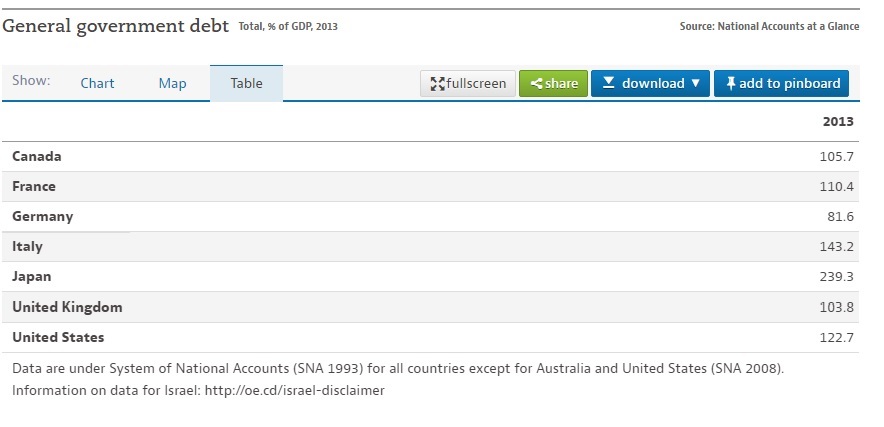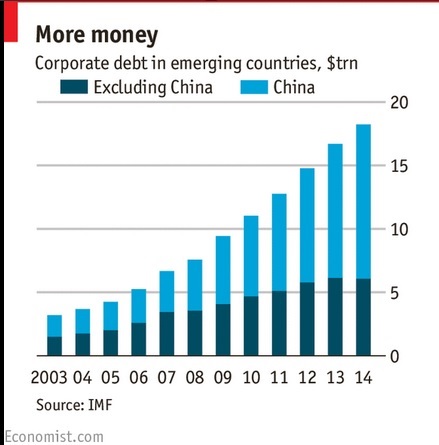“Монгол
орнын хөгжилд” хэмээх Их Британийн Монголчуудын санаачилсан, Европ
дахь Монголчуудын VII чуулга уулзалтад (http://md-forum.eu/mon/?cat=10) 2011 онд тавьж байсан
илтгэлээ орууллаа.
европын хөрөнгө оруулагчдыг хэрхэн монгол руу
татах вэ?
Гадаад оронд суугаа та бидний ихэнх нь өөрсдийн амьдралын үнэт цаг хугацааг
сурч боловсрох, аж амьдралаа дээшлүүлэх,
ажил албаны шугамаар гээд өөр өөрийн
шалтгаантайгаар гэр орон, ах дүү, ойр дотныхноосоо алс хол өнгөрөөж
байна.
Тиймээс энэхүү цаг хугацааг
ухаалгаар зарцуулж, хожим үр шимийг нь
хүртэх байдлаар өнгөрөөх ёстойг та бүхэн
хэнээр ч хэлүүлэлтгүй мэдэж байгаа.
Ийнхүү үр ашигтай өнгөрөөх нэг
хэлбэр бол Монголд хөрөнгө оруулагчдыг татах, сурталчлан таниулах явдал гэж би
хувьдаа үздэг. Ингэснээр та бид улс
ороныхоо хөгжилд хувь нэмрээ оруулаад зогсохгүй Монгол дахь өөрсдийн ажлын
байрыг бэлдэж байгаа хэрэг билээ.
Монголчууд та бид , ялангуяа Европын банк санхүү, эрүүл
мэнд, мэдээлэл технологи, аялал жуулчлал гэх мэт салбарт ажилладаг хүмүүс
маань хөрөнгө чинээ ихтэй, туршлагатай
компаниудыг Монголд хөрөнгө оруулах, салбараа нээхийг ятгах, сурталчилж яагаад
болохгүй гэж?
АНУ-ын Хөгжлийн
Агентлагийн судалгаанд өгүүлснээр 199-2009 оны хооронд Монголд 95 улсын 9940
хөрөнгө оруулагчид нийтдээ 3, 8 тэрбум ам.долларын хөрөнгө оруулжээ.
Харин 2010 онд нэмж 1,4 тэрбум
ам.долларын хөрөнга оруулалт орсон хэмээн Eurasia Capital
хэмээх хөрөнгө оруулалтын банк үнэлгээ хийсэн байна.
Тэгвэл энэ хөрөнгө оруулалтууд
хаанаас хийгдэж байна гэдгийг сонирхоё. Монголын Гадаад Худалдаа, Хөрөнгө
Оруулалтын Газрын (FIFTA) статистик
мэдээгээр, Монголд оруулсан нийт хөрөнгө оруулалтын хэмжээгээрээ БНХАУ (50%), Канад (8%), Нидерланд (6%), БНСУ (5%), Япон (3%), улсууд
тэргүүлжээ. Жич : / Виржин. Англи арал (5%), Бирмудын
арал (2%) /
Харин хөрөнгө оруулалт хийсэн
компанийн тоогоор БНХАУ (49%), БНСУ (18%),
ОХУ (7%), Япон (4%), АНУ (2%) зэрэг
улсууд тэргүүлжээ. Сонирхолтой нь Монголд хөрөнгө оруулсан тэргүүлэх 10 улсын дотор Нидерланд-аас өөр
Европын улс байхгүй байгаа ба Их Британийн оруулсан хөрөнгө оруулалт бусад хөгжингүй улстай харьцуулахад чамлахаар бага
байгаа харагдаж байна.
Хэдийгээр улс төр, хүмүүнлэг,
соёл урлаг гээд олон талаар Монгол болон Европын орнуудын харилцаа эрчимтэй хөгжиж байгаа ч
хөрөнгө оруулалт татах тал дээр тийм ч хурдацтай биш байна гэж хэлэх
байна. Тиймээс бурууг бусдаас хайх бус өөрсдөөсөө эхлэх, засаж залруулах,
цаашид анхаарах, хийж болох ажлын талаар
саналаа та бүхэнтэй энд хуваалцмаар байна.
Юyны өмнө
хэлэхэд, мэдээж Европын Холбоо Монгол улсын хооронд эдийн засгийн харилцаа
хөгжиж байгаа нь маргашгүй үнэн. Тухайлбал, гадаад худалдааны харилцаа улам эрчимжиж
байгаа бөгөөд 2009 онд Европын Холбоо худалдааны гол түншээр БНХАУ, ОХУ-ын
дараа орж байсан байна.
Харин гол ажлын байр бий болгодог, технологи нэвтрүүлж, улс
орны өрсөлдах чадварыг нэмэгдүүлдэг гадаад хөрөнгө оруулалтыг Европоос хэрхэн
татах вэ?
Европын Холбооны статистикийн газрын тайланд дурдсанаар 2008
оны байдлаар Европын Холбооны хөрөнгө оруулалтын гадагшаа урсгалын 12,7% буюу 413,2 тэрбум евро Ази тивд орсон байсан
ба гол хөрөнгө оруулалт нь Булангийн орнууд, Хятад, Хонгконг, Япон, Энэтхэг Сингапурт
байжээ.
Map 1: EU-27
FDI outward stocks as of end-2008 (EUR bn, % share in total extra-EU)
Энэхүү их хөрөнгө оруулалтын урсгалын хэдэн хувь нь
Монгол улсад ноогдох талаар мэдэхийн тулд бид өнгөрсөн хугацаанд ямар амжилтанд
хүрээд байна вэ гэдгийг товчхон сонирхвол дараах дүр зураг харагдаж байна.
Тэргүүлэх хөрөнгө
оруулагч улсууд. нийт дүнгээр (2010 оны байдлаар)
(эх
сурвалж: FIFTA)
Эндээс үзэхэд манайд улсад
оруулсан Европын хөрөнгө оруулалтын хэмжээ бусад улсуудтай харьцуулахад тийм ч
хангалттай бус байгаа төдийгүй хөрөнгө оруулсан компаниудын тоогоор ч
Европын орнууд тийм ч дээгүүр орохгүй аж. Европын Холбооны
27 улсаас нийт хөрөнгө оруулсан хэмжээгээр Нидерланд, хөрөнгө оруулсан
компанийн тоогоор ХБНГУ улсууд тус жагсаалтанд дээгүүр орсон байна.
Хөрөнгө оруулсан компаниуд улсаар (2010)
(эх
сурвалж: FIFTA)
Тэгвэл Барууны орнуудаас хамгийн түрүүнд Монголтой дипломат харилцаа
тогтоож, хүлээн зөвшөөрсөн гэгддэг Их Британи улс оруулсан хөрөнгөнийхөө
хэмжээгээр 12-т, хөрөнгө оруулсан компаниудынхаа тоогоор 11-д орсон байна.
Харин Их Британийн харъяа offshore
бүсүүдэд бүртгэлтэй компаниуд
нэлээд хувь эзэлжээ.
FDI
by COUNTRY in 1000’s USD
Rank
|
Country
|
Percentages
|
Total Amount
|
5
|
UK Virgin Islands
|
4.60%
|
222 438.15
|
12
|
Great Britain
|
1.06%
|
51 326.56
|
Foreign
Invested Companies by Country
№
|
Country
|
Persentage
|
Total
|
7
|
UK Virgin Islands
|
1.41%
|
151
|
11
|
Great Britain
|
1.13%
|
121
|
Монголд орсон нийт хөрөнгө
оруулалтыг салбараар нь задалж харвал уул уурхай, худалдаа, болон банк санхүү тэргүүлж
хөнгөн үйлдвэр, барилга малын гаралтай
бүтээгдэхүүн үйлвэрлэл удаалжээ. Үүнээс
үзэхэд, манайд орсон гадаад хөрөнгө оруулалтын өнөөгийн байдал сайн төрөлжиж чадаагүй, хөрөнгө
оруулалтын эх үүсвэрүүд тэнцвэртэй биш байгаа нь ажиглагдаж байна.
(эх
сурвалж: FIFTA)
Тиймээс гадаад хөрөнгө
оруулалтыг тэнцвэржүүлэх, бусад салбар руу хөрөнгө оруулалт татах тал дээр тодорхой
ажлууд хийгдэж байгаа ба тухайлбал хөрөнгө оруулалтын уулзалтууд, бага хурлууд
болж, хөрөнгө оруулалт, гадаад худалдааны хөнгөлөлтын гэрээ хэлэлцээрүүд хүчин
төгөлдөр үйлчилж байгаа. Гэхдээ үүнийг зөвхөн “төр засаг анхаарах ёстой, шийдэх
ёстой” хэмээн бүхнийг бэлэнчлэх сэтгэлгээгээр хандах бус өөрсдөө санаачлан сурталчилж, өөрсдийн
боломжийг нээж ажиллах бололцоотой гэж бодож байна.
Хийж болох
зарим ажлуудаас дурьдвал:
1.
Европ дахь монголчууд
Европын хөрөнгө оруулагчдын уулзалтуудад идэвхтэй оролцох, Монголоор
хаягласан хөрөнгө оруулалтын уулзалтууд тогтмол зохион байгуулах
2.
Монголын ажил хэрэгч хүмүүсийн Европ дахь мэдээлэл хуваалцах сүлжээ байгуулах, хэрэв
байдаг бол үүнийг Монгол дахь бизнесийн байгууллагуудтай холбох /санхүү, эдийн засгийн
чиглэлийн хүмүүс, олон улсын байгууллагад улсаа төлөөлөн ажиллаж байгаа хүмүүс,
бизнес эрхлэгчид, сонирхолын бүлгүүдийн хооронд/
3.
Монголын талаарх мэдээллийг Европын хэвлэл мэдээлэлд аль
болох олон гаргах, эерэг мэдээлэл, сонирхлыг төрүүлэх талаар хамтарч ажиллах
4. Монгол
шиг жижиг улс орнууд Европт өөрсдийгөө хэрхэн сурталчилдаг талаар туршлага
судлах / үйл ажиллагаа явууулах ивээн тэтгэгч хэрхэн олох, хотын
захиргаануудаас ямар ямар дэмжлэг байдгийг судлах г.м/
5. Европын
хэлүүд дээр Монголын талаар онлайн мэдээллийг нэмэгдүүлэхэд ажиллах /блогууд,
фэйсбүүк, форум ажиллуулах г.м/
Хэрэв зөв зохион байгуулж, тогтмол ажиллаж чадвал энэ
чиглэлээр хамтарч ажиллах боломжтой Европ
дахь монголчууд гэдэгт:
-
Олон улсын байгууллагад улсаа төлөөлөн суугаа монголчууд
-
Монголын Элчин Сайдын Яамдууд
-
Худалдааны төлөөлөгчид
-
Эрдэм шинжилгээ, судалгааны ажил хийж буй монголчууд
-
Мэргэжлээрээ Европт ажиллаж байгаа шилжин ажиллагсад
-
Оюутнууд /Европ
дахь Оюутны Холбоодууд, Монголчуудын Холбоодууд /
-
Европын иргэншил авсан монголчууд
г.м хүмүүсийг тооцож болох байна. Үүний дээр гадаадын
иргэдийн оролцоо бүхий Сонирхлын
бүлгүүд / Парламентын бүлэг, худалдааны
танхимууд, найрамдлын нийгмлэгүүд,
ТББ-ууд/ хамтарч ажиллахад болохгүй гэх газаргүй.
Одоо хэн Монголд хөрөнгө оруулах боломжтой талаар харцгаая:
1.
Байгууллагын хөрөнгө оруулагчид буюу institutional
investors. Урт хугацааны хөрөнгө оруулалт хийдэг газрууд
бөгөөд эрсдэлийг бага байхыг шаарддаг.
/тэтгэврийн
сангууд, даатгалын компаниуд, hedge
funds болон хөрөнгийн
менежмент хийдэг компаниуд/
2.
Олон улсын хөрөнгө оруулалтын банкуудыг салбараа нээхийг
ятгах. Одоогоор монголд шинээр л хөрөнгө оруулалтын банкууд
байгуулагдаж байгаагаас бус томоохон
банкууд салбараа нээгээгүй байна. ОХУ-д HSBC, Barclays, Societe General, Citigroup,
Unicredit, Morgan Stanley, Santender банкууд суурин ажилладаг ба голдуу corporate service&
institutional clients –д төвлөрч ажилладаг аж. Монголд Standard Chartered банк салбараа нээнэ гэсэн мэдээлэл гарч
байсан.
3.
Мэргэжлийн үйлчилгээ үзүүлдэг компаниуд. Аудитын компаниуд аль хэдийн орсон ба хуулийн
мэргэшсэн фирмүүд, зөвлөх үйлчилгээ, даатгалын компаниуд орох боломжтой. (Price Waterhouse Cooper, Ernst & Young,
Firebird Investment etc)
4.
Хятадын зах зээлд болон Монголын түүхий эдэд ойртох гэсэн
үйлдвэрлэл эрхлэгч бусад компаниуд
Тэгвэл эдгээр компаниудыг татахыг тулд хөрөнгө оруулагчдад бид юу хэлж ярих
естой вэ?
Өнөөгийн Европт болон Монгол дах хөрөнгө оруулалтын
нөхцөл байдлыг тайлбарлах. Үүнд:
1. 2010
онд Монголын хөрөнгийн бирж дээр арилжаалагддаг хөрөнгийн хэмжээ 121%-оор өссөн
2. Монгол
дэлхийн хоёр дахь хурдацтай хөгжиж байгаа эдийн засаг / ДНБ-ын өсөлтийн түвшин
ам.доллараар илэрхийлэгдсэн дүн/
3. Монгол
төгрөг 2010 оны хамгийн өсөлт өндөртэй
валют болсон
4. 2010
онд Монголд гадаад хөрөнгө оруулалт эрс нэмэгдсэн
5.
Монголын Хөрөнгийн биржийг Лондонгийн Хөрөнгийн бирж тодорхой
хугацааны турш удирдахаар болсон
6.
10%-ийн татварууд
/аж ахуйн, НӨАТ, хүн амын орлогын татвар/
7.
Татварын хөнгөлөлттэйгээр Европ руу бараа экспортох
боломж
8.
Компанийн засаглалын хөгжил урагшилж байгаа
9. Европ
дахь хөрөнгө оруулалтын ашгийн хувь 5-10% байдаг бол Монголын хувьд зөв газраа зөв үед хөрөнгө оруулбал анхны хөрөнгө оруулалтаа нугалж олох
тохиолдол ч байна.
FDI
income and rates of return, EU-27
Монгол дахь амжилттай хөрөнгө оруулалтын жишээнүүд:
Нэг. Investment
‘’IPO
of MMC, which
raised US$651mn its
Hong Kong debut,
was a record high
among Mongolian companies.
Being one of
the early investors
in MMC in
a pre IPO private
equity deal, EBRD
realized a stellar
return from its
investment.
The bank
bought 5% of
MMC for US$30mn
in a private
equity deal in
early 2009 and
sold 1.8% of
its holding for
US$32.54mn immediately following
the completion of
global offering for
a gain of
5 times in
less than two
years.’’
/ ‘Mongolia Outlook 2011’ Eurasia Capital /
Хоёр. Currency appreciation
The currency finished the year 15% higher against the U.S.
dollar, outperforming the world's currencies and coming close only to the South
African rand, which appreciated 14%, and the Australian dollar that rose by
13%.
/ Fortune magazine /
Гурав. Property market
Rising
demand for accommodation from foreign experts and an extreme shortage of
housing have generated very high yields. In Ulan Bator, rental income returns
(yields) on high-end property are around 18%.
Prices have been rising rapidly due to rising
demand. Capital appreciation has been around 15% per annum in the past three
years, according to Mongolian Properties, a development company. 19 OCT 2010 ( Source: http://www.globalpropertyguide.com/Asia/Mongolia)
ТӨГСГӨЛ
Монголд ямар боломжууд байгаа
болон аль салбарт хөрөнгө оруулагч татах хэрэгтэй байгаа талаар хүмүүс янз
бүрийн бодолтой байдаг. Монголын хувьд
мэдээж уул уурхай, эрчим хүч бол ядах юмгүй хөрөнгө оруулагч олдох
салбарууд гэж би хувьдаа үзэж байна.
Харин зочид буудал, аялал жуулчлал, ярианы төв гэх мэт
үйлчилгээний салбар, тээвэр зуучлал, ложистикийн бизнес, үл хөдлөх хөрөнгө, хөдөө
аж ахуй, банк санхүүгийн салбарт Европоос хөрөнгө оруулагчид татахад бид хүч, анхаарлаа хандуулах хэрэгтэй
санагддаг.
Ашигласан материалууд болон эх сурвалж:
1. Mongolia Economic
Growth Assessment. Business Growth
Initiative Project. USAID Alan Saffery, Lawrence Camp, Dany Khy, Stratos Tavoulareas & Margaret
Herro October 2010
2. Mongolia Investment
Climate Statement 2011 Economic and
commercial section of the US Embassy in Ulaanbaatar, Mongolia
3. Mongolia Investment
Climate Statement 2010 Economic and
commercial section of the US Embassy in Ulaanbaatar, Mongolia
4. Mongolia Outlook 2011.
Eurasia Capital Ltd 2011
6.
Mongolia
Quarterly Economic Update The World
Bank January 2011














